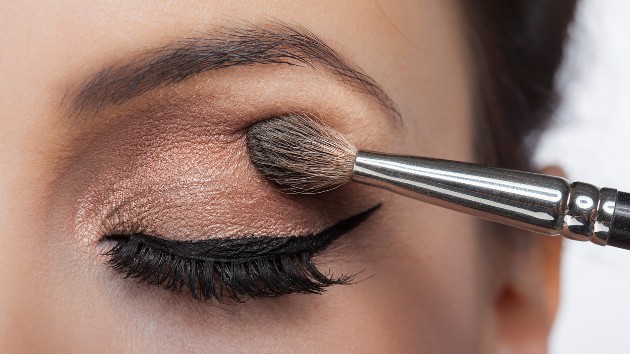Petardj/iStock(NEW YORK) — You probably already know you shouldn’t sleep in your makeup. Reality is it happens probably more often than not.While many people believe it’s not a big deal, one doctor is warning everyone about the major consequences, specifically relating to what could be lurking under your eyes while you hit snooze in a fully dressed set of mascara-filled eyelashes.Board-certified ophthalmologist Avneet Sodhi Gaur, M.D., of the Assil Eye Institute reposted a startling image of a flipped eyelid that many of us would file under the “Not Safe For Work” category at first glance.The close-up photo shows spotty discoloration and appears to be infected.”‘Never sleep in your makeup’.. heard it a million times but still do it.. you are not alone,” Gaur wrote in the caption.
She went on to explain how mascara has been found in the upper eyelids of several of her patients and how all of them have also admitted to not removing their makeup every night.Gaur warns that skipping proper makeup removal for your eyes can lead to severe eye infections.The image she highlighted was originally from a 2018 case report titled “Subconjunctival Mascara Deposition” found in the American Academy of Opthalmology Journal by Dana Robaei, Ph.D.The report highlighted a 50-year-old woman who was experiencing chronic foreign body sensation in both eyes. She admitted to 25 years of heavy mascara use with inadequate removal which led to the darkly pigmented subconjunctival concretions that are noticed in the photo of her flipped eyelid.The patient’s condition was associated with what is known as follicular conjunctivitis and punctate corneal erosions.”This, fortunately, is a rare case that needed surgical removal of the embedded mascara,” Gaur told ABC News’ Good Morning America.Typically surgery isn’t needed if the patient generally keeps good eyelid hygiene, she said. Instead, a topical antibiotic can be used to treat most conditions.”Overall, these have a good prognosis but the best thing is prevention,” she added.Five ophthalmologist-approved preventative tips for avoiding eye infections1. Always make sure that all eyelid makeup is removed properly and thoroughly. While there are people who attempt to remove their makeup at night, Gaur advises that they may not be doing a thorough job. When there is makeup consistently left behind, it eventually causes build-up and inflammation on the eyelid margins — also known as blepharitis.2. Replace eye makeup every three to four months to ensure that you’re not using any brushes that are starting to harbor bacteria. “Another common culprit is that people use their mascara or eyeliner for far too long,” said Gaur. “It is recommended that we should only use it for about three to four months and discard it thereafter. Long use of mascara or eyeliner can cause bacteria buildup on makeup brushes and leads to eyelid inflammation.”3. Avoid sharing eye makeup, especially mascara and eyeliners, with others as this can transmit infections.4. Keep makeup brushes clean between uses.5. If an eye infection develops, discard any makeup that was used on or near the eye area.What’s the worst that could happen?Research shows that underlying eye conditions such as dry eyes, blepharitis, allergic conjunctivitis, or any history of eye infections could also make conditions worse when you are inadequately removing your makeup.”Worst case scenario — this could lead to blindness from severe eye infections and permanent scarring,” Gaur said.Eye surgery after-careIf your eye infection does result in having surgery, Gaur said you will need to keep your eyes clear of any makeup a few days leading up to the procedure.Patients can resume wearing eye makeup approximately two weeks post-surgery.”Eye makeup around the time of any ocular surgery can increase the risk of eye infections, so why play with increasing that risk?” said Gaur. Copyright © 2020, ABC Audio. All rights reserved.












